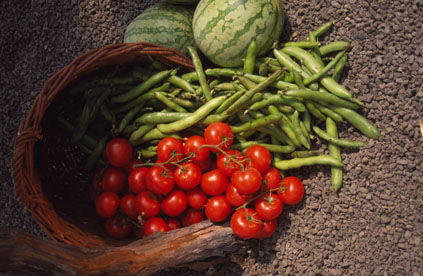COMMERCIAL VEGETABLE PRODUCTION - LEARN SUSTAINABLE GROWING METHODS ONLINE
Lots of Practical Components in this course

Develop skills and knowledge required for commercial vegetable production, including a variety of production methods with an organic emphasis. This course is suitable for:
- Property owners considering moving into commercial vegetable production
- Anyone working in the vegetable production industry (growers, farm staff, suppliers, marketers etc) who has not yet undertaken a foundation course; and wishes to fill in gaps in their knowledge.
- Market Gardeners who are interested in converting to organic production